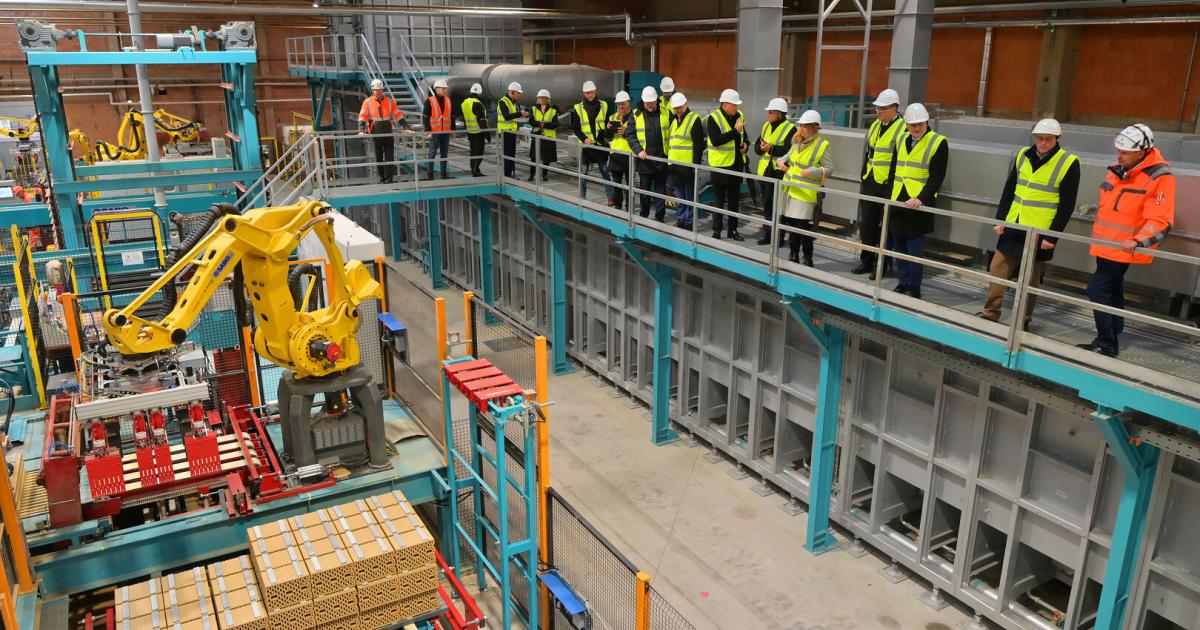Only a few Austrian companies can look back on a company history spanning more than 200 years. The listed Viennese group Wienerberger which was founded in 1819, is now a global leader in the brand’s wall, facade and roof tiles as well as plastic pipe systems Pipelife and ceramics of the brand Steinzeug-Keramo. Wienerberger is the market leader for concrete paving stones in Central and Eastern Europe. The brick company around CEO Heimo Scheuch is not only active on its home market in Europe, but also in North America.
In the mid-1980s, Wienerberger began taking over German companies and, in the 1990s, Eastern European companies. The company operates a total of 216 production sites in 28 countries around the world and had sales of around 4.22 billion euros in the previous year with 20,000 employees.
Better insulation effect
Wienerberger AG has been steadily expanding its portfolio through acquisitions for years. Last year, the Steinheim brickworks in North Rhine-Westphalia was acquired, further expanding the Poroton clay block division. Poroton is a brand of Wienerberger. These are reddish bricks that are perforated and thus achieve a better insulating effect.
Wienerberger boss Heimo Scheuch relies on takeovers.
With the product Porotherm Wienerberger has developed a brick that is filled with mineral wool and thus offers a high level of heat and noise protection. The Danish Strojer Group and the Swedish technology company Wideco were also taken over last year. The latter is working on solutions for water and energy management.
At the end of February 2024, Wienerberger completed the €600 million takeover of the French Terreal Group, a provider of roofing and solar solutions. The pitched roof specialist terrestrial employs 3,000 people at 28 production sites and has a turnover of around 740 million euros.
Further growth
“With the takeover of Terreal and the development into a European pitched roof expert that integrates solar, rainwater and other solutions including accessories and insulation for the roof, Wienerberger is now creating a strong platform for further growth,” says the group.
It claims to be a pioneer in energy efficiency and reduction of carbon dioxide emissions.
Bricks were baked on the outskirts of Vienna as early as the 19th century
This is what happened in the Upper Austrian factory Uttendorf the gas oven was replaced by the world’s first electric oven (high-temperature heat pump) for the production of hollow bricks, i.e. green bricks, and a total of 30 million euros was invested.
“I am pleased that we have reached a crucial milestone on the path to climate neutrality with the reopening of our modernized brick factory in Uttendorf,” says Wienerberger boss Heimo Scheuch.
Produce almost climate-neutrally
“In the industry, bricks are typically dried and fired using energy from natural gas. At the Uttendorf demo site, we are electrifying these processes, increasing their energy efficiency and relying 100 percent on electricity from renewable sources,” explained Wienerberger Chief Technology Officer Johannes Rath at the beginning of December. “This approach will be the CO2-Reduce emissions during production by 90 percent and energy consumption by a third in the future. This creates a showcase factory that produces bricks in an almost climate-neutral manner.”
